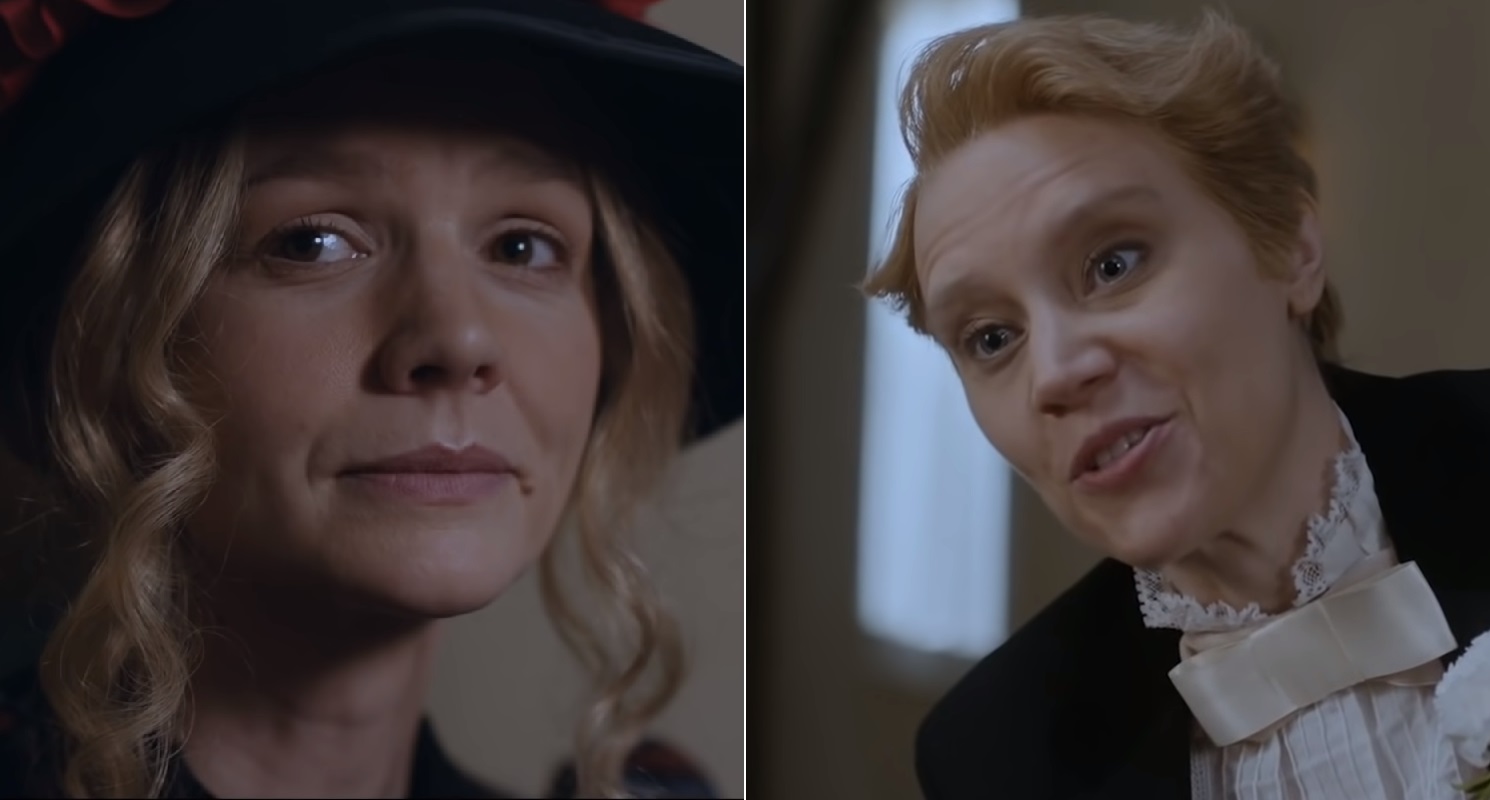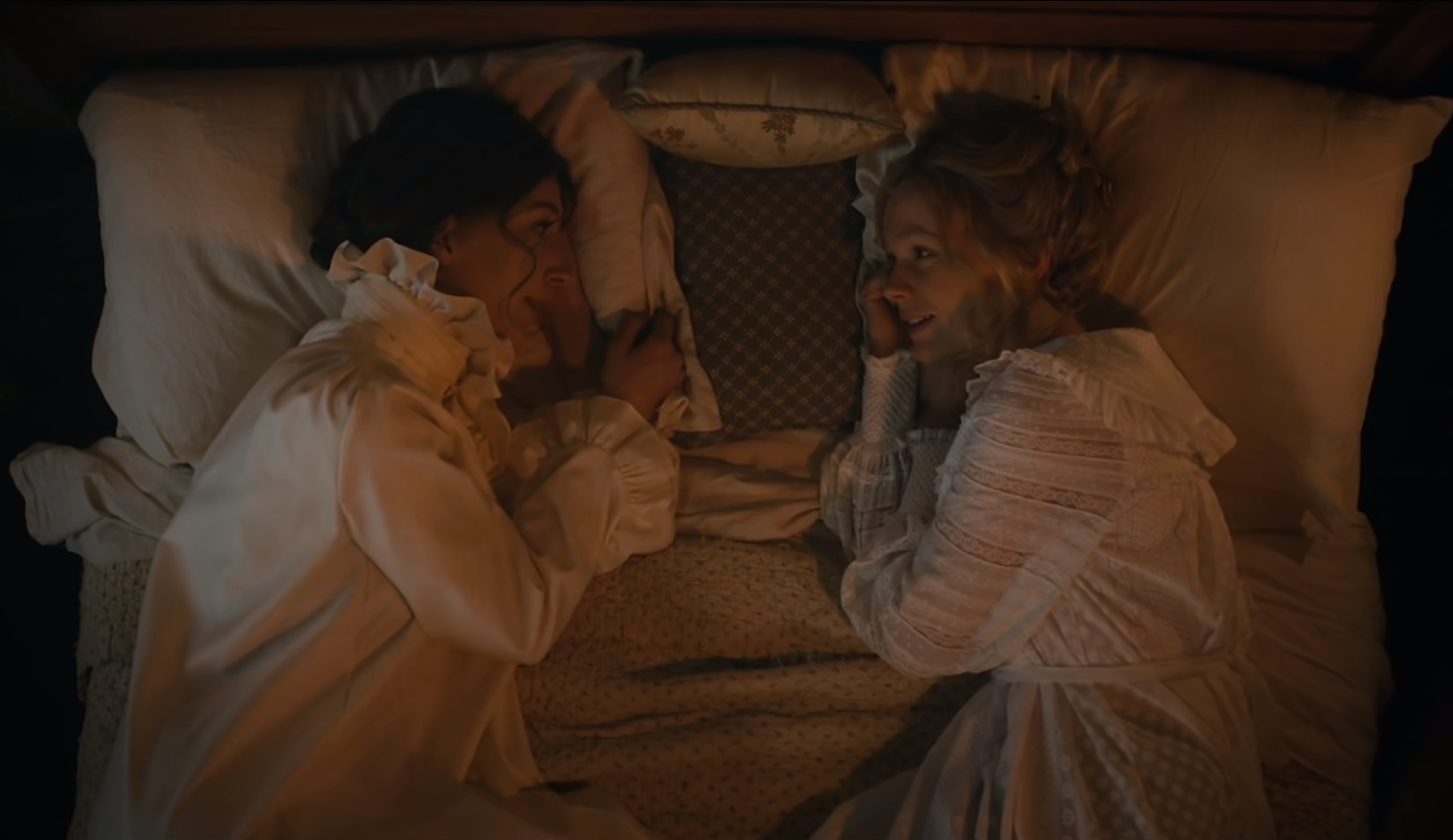Carey Mulligan and SNL’s Kate McKinnon hilariously spoof Ammonite and lesbian period dramas
The actresses skewered the Hollywood tropes that mark many a female same-sex love story.
By Will Stroude

Words: Will Stroude
Saturday Night Live delivered a pitch-perfect send-up of period lesbian dramas over the weekend, with a memorable skit that skewered Hollywood tropes around female same-sex romance on film.
Guest host Carey Mulligan joined SNL’s Kate McKinnon and Heidi Gardner in a painfully wry and funny spoof of recent sapphic screen dramas Ammonite and Portrait of a Lady on Fire entitled ‘Lesbian Period Drama’, which bore all the hallmarks of the genre – “grazing fingers”, “Academy Award-winning glance choreography”, and, of course, a sexually-tense “drawing scene”.

As the Kate Winslet and Saoirse Ronan-starring Ammonite continues to receive acclaim following its UK release last month, ‘Lesbian Period Drama’ took aim at the film industry’s oftentimes solemn approach to prestige LGBTQ story-telling as a voiceover deadpans that the movie features “two straight actresses who dared not to wear make-up, twelve lines of dialogue” and a “two and a half hour runtime”.
With McKinnon fittingly cast as ‘Stone Cold Ex’ – an archetypal character played by the “one actual lesbian actress” – the voiceover adds that Mulligan and Gardner’s blossoming relationship will be defined by “two hours of excruciating tension, all building up to a sex scene so graphic you’ll think ‘Oh right, a man directed this’.”
The narrator adds: “Lesbian Period Drama: you get one a year – make the most of it.”
While SNL’s latest sketch perfectly ridicules the tropes that have defined Hollywood LGBTQ dramas for years, Ammonite star Kate Winslet reveals in the Attitude May issue that her intimate on-screen moments with Saorise Ronan offered a refreshing antithesis to the usual objectification of woman that still sadly defines many big-screen love scenes.
“What’s interesting [is that] even though I’ve done a lot of, quote unquote, ‘love scenes’ in the past, predominantly with a male partner, and I have always felt that I’ve stood my ground and said, ‘Yes, I’m OK with that. No, I’m not OK with that’,” Winslet, 45, tells Attitude.
“Doing Ammonite made me realise, have I really stood my ground?”

The Oscar-winning actress and star of Titanic goes on: “Because removing the heterosexual stereotypes… just like, the space for equality and freedom and real longing and connection, the lid goes off the whole thing.
“It was just amazing. To have that female, not just bond, but understanding… You know, women know what women want. Men don’t always know – and sometimes you have to tell them!”
Winslet continues: “It really taught me a lot and I feel like I’m still learning a bit about how objectified women can so easily be in a heterosexual love scene of a similar nature without us even realising.
“Often, a writer will write in the script something like “Building pace, she’s on top, dominating now,” which is a horrible, generalised description of what the woman is doing. Why can’t she just know what she wants? Why does she have to be dominating? Why do we have to label women in that way? And that automatically feeds this idea of objectification, which we 100 per cent all need to be aware of.
“And actually, different words I think are used to describe a heterosexual love scene versus a same-sex love scene – particularly same-sex love scenes with women. You know, words like ‘saucy’, ‘titillating’… these kind of, like, almost porn[ographic], dated words will be wheeled out time after time.”
She adds: “I think everyone needs to take a little responsibility for being a bit more sensitive and mindful of their words.
“Why can’t they just be two women who are wildly and passionately in love with each other? Why does it have to be ‘saucy’ and ‘titillating’ and ‘erotic’? Why can’t it be ‘graceful’ and ‘powerful’?”
Read the full interview with Kate Winslet in the Attitude May issue, out now to download and to order globally.
Subscribe in print and get your first three issues for just £1 each, or digitally for just £1.08 per issue (limited time only).

